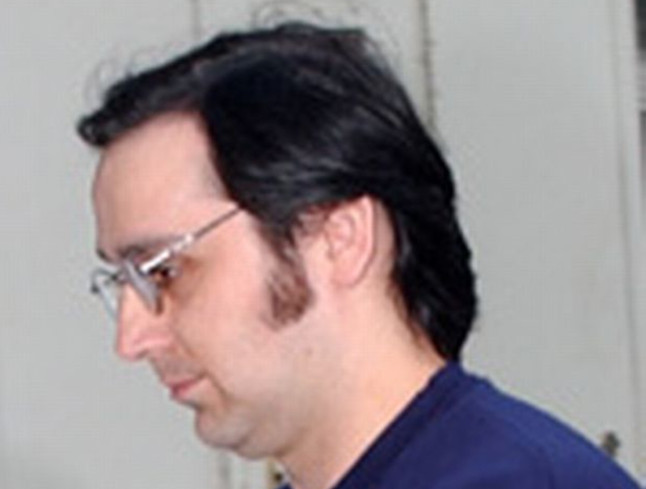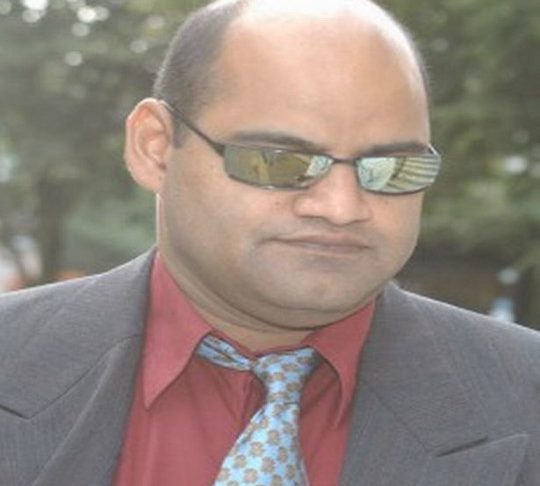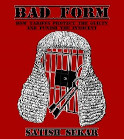By Satish Sekar[i] © Satish Sekar (December 30th 2024)
Murdered for a Condom!
In just over two weeks a brutal murderer, Jeffrey Gafoor, will be released from prison despite a grossly lenient tariff that was lower than the minimum required by law (Schedule 21 of the Criminal Justice Act of 2003, replaced by Schedule 21 of the Sentencing Act of 2020). His tariff of just 13 years, including four months on remand, for an exceptionally brutal sexually-motivated killing meant that he was eligible to apply for parole far sooner than the public would like after ignoring the basic rights of victims (see Lynette’s Law Part One https://fittedin.org/fittedinwp/2024/12/30/lynettes-law-part-one/).
Neither Lynette White’s family nor the Cardiff Five or their families or whatever community he is released into without consultation will know why a man who had no criminal record or history of mental illness when he chose to slit a young woman’s throat to the spine or why he stabbed her over 50 times – more than half of which were on her breasts or nearby – committed that horrific crime.
They will not know why a man who carried a knife because he claimed he had been robbed by sex-workers was allowed to win his release without the public being told why his tariff ignored the gross sadism of his crime, why it failed to take into account that he said he committed that crime, which would now carry a starting point of 25 years just for carrying a weapon that he could and in fact did use, because he wanted £30.00 back, as Lynette refused to have unprotected sex with him.
During the trial of Mouncher and Others in 2011, Gafoor said that he did not take the money back. While £30.00 was found in Lynette’s shoe (her usual hiding place for money), there is no proof that that was the money that Gafoor had given her. The significance of whether he took the money back is clear – he had given her the money. It was her money now and if he took it back at knifepoint, then this was armed robbery. That should have been reflected in the tariff that was imposed on Gafoor – it was not. It should have been considered in his applications for parole – there is no evidence that this was looked at in any of his six applications for release on parole.
Inadequate Tariffs –
Amazingly, that point has never been raised, even though it should have resulted in a 30-years starting point. And that is before the next fiasco. Schedule 21 allows judges to take any aggravating factor into account and allow any amount for it up to a whole life order.
Far from tying the hands of judges Schedule 21 gave judges the power to set any tariff they wanted to all the way up to a whole life order. However, Lynette’s killer received a paltry 13 years, below the minimum starting point for a crime of this magnitude. Mr Justice Royce added a total of four-and-a-half years for the exceptional brutality of the murder and the fact that Gafoor had allowed men he knew were innocent to have 16 years of their lives stolen for his crime. It wasn’t even the maximum that Royce thought he could impose for aggravating factors and was an insult compared to the 16 years of actual prison time that the Cardiff Five served for Gafoor’s crime.
The tariff imposed by Royce was grossly inadequate, but the tariff system contains all the powers that judges need to impose tariffs that fit the crimes. Nevertheless, of six vindication cases – homicide cases where the real murderer has been brought to justice after a miscarriage of justice – not one has resulted in an adequate tariff, and only in the murder of Lynette White has the judge treated allowing the innocent to be wrongly accused and/or convicted as an aggravating factor at all, although lip service has been paid to the innocent without anything being done in practice.
There are three other vindication cases in homicides that did not involve tariffs. Shamefully, many of those cases did not result in even the limited provision of after-care being given to them as, incredibly, they do not meet the definition of being a victim of a miscarriage of justice even though there is no credible doubt about their innocence – to qualify for the scheme the victim of injustice has to not only be wrongfully convicted, but lose an appeal before winning one. That does not apply to the Cardiff Five. It also does not apply to the other Welsh vindication case, Phillip Skipper.
Parole Iniquity
Next year (2025) my book Bad Form: How Tariffs Protect the Guilty and Punish the Innocent will be published. It will be my fourth book on this case but the first that deals with the tariff system and parole system and the terrible inadequacies of both.
Vindication cases have more victims than usual – the family of the victim of the murder and also the innocent people whose lives were wrecked and all of their families too. Jeffrey Gafoor is the first murderer in a vindication case to come before the Parole Board. Previous applications show that the Parole Board has learned little from the notorious John Worboys fiasco which cost then Parole Board Chairman, Nick Hardwick, his job.

No attempt was made by the Parole Board or Probation Service to contact the numerous victims in the Lynette White case. No attempt was made to acknowledge them as victims or secure victim (impact) personal statements from them for use in setting the tariff or consideration for parole.
The Parole Board was solely responsible for the delay in informing interested parties of the date of Gafoor’s latest application. Shamefully, that was used to prevent a public hearing even though the current Secretary of State for Justice, Shabana Mahmood, had made it clear that she favoured a public hearing.
J’accuse
The Parole Board made sure that the delays all but prevented the only means of challenging that decision – a decision that put my safety in jeopardy too – through lack of time. It stressed that the only means of challenging its decision was judicial review after it had made sure that it was too late to challenge its weakest decision.
After it refused to hold the hearing in public I asked it to reconsider. Behind closed doors the Parole Board conducted its review, making sure all the public received was a short summary of a dossier of over a thousand pages and the hearing itself. It remains unclear if issues I had raised repeatedly were raised, or those of others too.
It responded to my request to reconsider its decision to hold the hearing behind closed doors after it had completed its hearing behind closed doors. The Parole Board told me the only option was judicial review after it knew that it was impossible to judicially review that decision. While claiming that its sole purpose was to protect the pubic, it made sure that the public, including most of the victims were excluded from the process.
Judicial Review
The Parole Board all but ignored the victimhood of the Cardiff Five and ignored the rights of their families too. It acknowledged a relative of Lynette and took her victim personal statement into account, although it made little difference. The Cardiff Five and their families are victims too. The Parole Board and criminal justice system should have sought them out and assisted them to be heard if they wanted to make representations – that did not happen. They are all victims of Gafoor’s actions and now the system too.
Judicial review is one of the few rights available to the public, but in this case it was circumvented before the hearing and after. The Parole Board was responsible for making it impossible to submit the original request for a public hearing on time. It knew it, but refused to take responsibility. Instead, it made it impossible for the public to fully exercise its rights – journalists and other members of the public can exercise their rights to request a public hearing if and only if they are informed in time. That did not happen. The reconsideration of that issue failed to reflect the arguments advanced and ensured that it was nigh on impossible for the public to exercise its rights. Was that its intention?
The supposedly independent Parole Board circumvented the public’s rights. By holding the hearing behind closed doors, the public was prevented from understanding the process in this complex case and from knowing the facts behind the Parole Board’s decisions. Instead of an open process where all could observe and understand in full a secretive process was imposed by stealthy means, because the right to judicial review was rendered impossible before the hearing took place. The hearing took place in private and the public is expected to trust the Parole Board after it behaved like this.
A further challenge to the decision was fobbed off as the Parole Board utilised the fact that it has no appeal system to try to force its decision on the public. Its behaviour in this case is disgraceful, so much so that it has shown that its decisions cannot be trusted. The Secretary of State for Justice said that there were no grounds to intervene. Respectfully, I cannot agree. There are, in my opinion ample grounds to believe that the Parole Board’s conduct in this case and some of its decisions are procedurally improper, unlawful or irrational, the requirements to judicially review a decision.
I will give it one last chance to provide an open and trustworthy process before Gafoor is released early next year by demanding that it reconsider its conduct and decisions, which include a refusal by it to tell me exactly what it has told Gafoor and his representatives about me and what I said to the Parole Board even though that is the only way I can assess if they have put my safety in jeopardy or not. If that and more is not done, I intend to exercise the right to judicial review.
Furthermore, I plan to demand changes to the system that oblige the system to deliver adequate protection to every citizen. Judges have shown that they cannot be trusted to use the powers that Parliament gave them and the Parole Board has shown in practice that some victims may matter while these do not. This is nowhere near good enough.
[i] Satish Sekar is the author of Fitted In: The Cardiff 3 and the Lynette White Inquiry (1998), The Cardiff Five: Innocent Beyond Any Doubt 1st edition 2012 and 2nd edition (2017), Trials and Tribulations: Innocence Matter? (2017) and Forensic Pathology: Preventing Wrongs (2020). Bad Form: How Tariffs Protect the Guilty and Punish the Innocent will be published in 2025.





